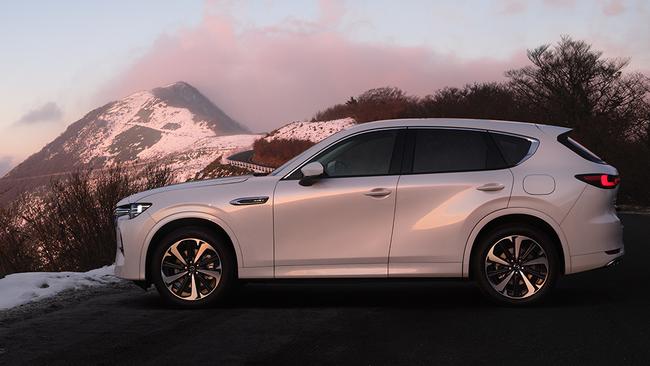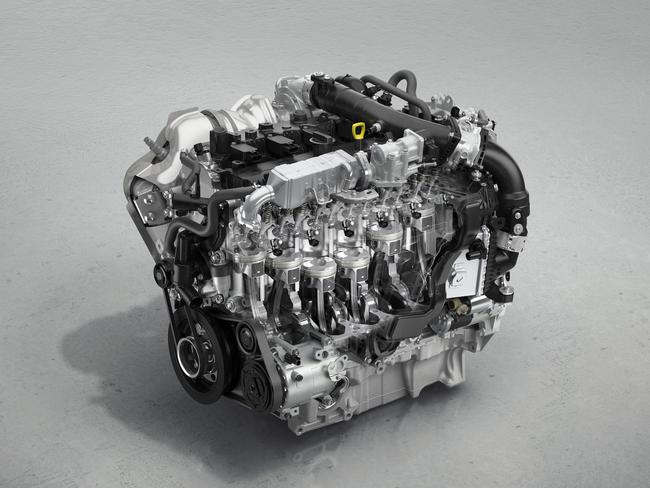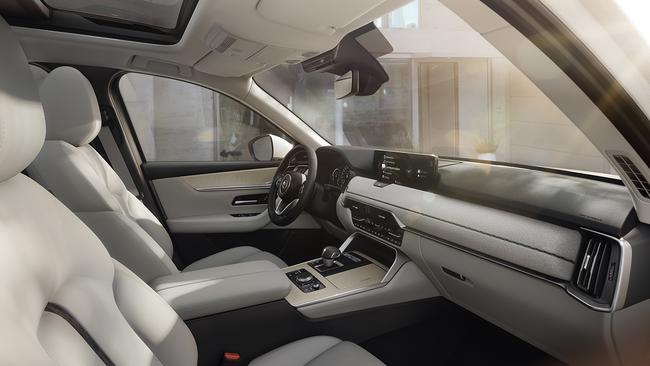Combustion engines may be more emission friendly in countries like Australia and Japan
Australia’s electricity is largely generated by fossil fuels, and with the slow uptake of charging infrastructure, the humble diesel engine might be more emission friendly according to one of Japan’s largest automakers.

As Chinese and American brands dominate the EV marketplace, Japanese car makers are going a different way, with Mazda in particular claiming that “combustion engines are still the future”, particularly in countries like Australia, and Japan, where electricity is largely generated using fossil fuels.
Mazda’s program director for its new CX-60 large SUV – which will be offered in Australia with six-cylinder petrol and diesel engines, as well as a plug-in hybrid (PHEV) version – Kohei Shibata, told The Australian in Hiroshima this week that he still saw a big future for diesel-powered cars, as an alternative to EVs, despite the fact that countries in Europe are moving to outlaw the use of the fuel in passenger cars, and combustion engines in general.
“My personal view is that if you look around there are many people who don’t have any charging equipment, there’s no charging stations, and given that, maybe a diesel is very practical, because it can drive a long distance,” Shibata said.
“We still very much believe that combustion engines have a future in those countries where electricity is generated using fossil fuels, because an EV is not particularly friendly to the environment in those places.”

According to Mazda’s own figures, a combustion-engine car driven in Japan would – when the total impact of a vehicle is considered from wheel to well (basically from construction to end-of-life recycling) – produce less CO2, up to distances of 110,000km.
From that point on, an EV produces fewer emissions, but if the electric vehicle then has to replace its battery at around 160,000km, the traditional combustion engine returns to being the less-polluting option (at least in countries where the electricity is being sourced from non-renewable sources).
“In Japan, we still have a lot of diesel models, they are very popular here, but for Europe we will probably see more sales of the plug-in variants,” Shibata added.
“Australia has quite a good understanding of diesel too, but at Mazda, diesel is something we believe has a lot of opportunities in the future.”

According to Nikkei Asia, global EV sales were dominated in 2022 by Chinese manufacturers, with 40 per cent of the market, followed by America (mainly Tesla) with 30 per cent and European car makers with 20 per cent. Japan made up just 3 per cent of the electric market.
In Japan itself, hybrid vehicles, like the Toyota Prius, which has often been the biggest selling car in that market, are far more popular than pure electric cars, which made up only around one per cent of sales in the Japanese market in 2022.
Shibata also revealed that, while some competitors – like Korean premium brand Genesis – are already releasing pure electric models in the large EV market, such a variant was never considered for the Mazda CX-60.
The EU has announced that it will ban the sale of all new petrol and diesel combustion-engined passenger cars and vans in the 27-country European bloc by 2035.
The mayors of Paris, Mexico City, Madrid and Athens have also announced that they will ban the sale of all diesel-powered cars and trucks by 2025.



To join the conversation, please log in. Don't have an account? Register
Join the conversation, you are commenting as Logout